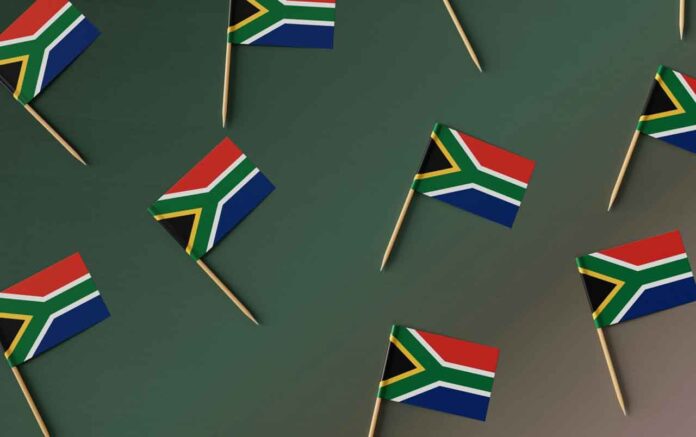Even though apartheid officially ended in South Africa with the establishment of a democratic government in 1994, three decades on, its repercussions continue to reverberate deeply in the social construct of the nation. While equality remains the goal, the economic divide between the haves and have-nots persists despite government and public efforts to effect change. Mark Lamberti, one of the country’s most distinguished businessmen — who holds a DBA from the University of Pretoria, a master’s from the University of Witwatersrand, and certification in Harvard Business School’s Presidents in Leadership Program — believes in order to level the playing field, in addition to systemic reform, meaningful scholarship opportunities must be made available to the underprivileged.
South Africa’s Long History of Educational Inequality
Mark Lamberti’s resume speaks to an almost dizzying level of achievement. He explains that while he invests time and money in a wide variety of interests, in his capacity as a philanthropist, director of educational companies, and lecturer, most center around education. Lamberti understands that the intrinsic educational challenges South Africa currently faces are deeply rooted in racial inequality. This legacy of economic deprivation must be counterbalanced by means of both governmental and philanthropic intervention.
“Many schools and the communities they serve continue to live with the consequences of the political and economic decisions made during the apartheid era. The result is that a child’s experience of education in South Africa still very much depends on where they are born, how wealthy they are, and the color of their skin,” reported Amnesty International in its 2020 study, Broken and Unequal: The State of Education in South Africa.
Consequently, about 20 years ago, Lamberti and his family decided to put their money where their heart was, focussing exclusively on the education of lesser privileged young people. Initial scholarships to individuals gave rise to sizable donations through companies and universities. On his resignation after nineteen years as CEO of Massmart Limited, a fund to assist employees and their children with tertiary education was established. In like vein Lamberti sacrificed his compensation as CEO of Imperial Limited to subsidise the tertiary education of lower earning employees’ children. In 2019 the Lamberti Tertiary Education Foundation made a sizable donation to his alma mater the University of Witwatersrand, channeling financial support to benefit high achieving, financially challenged female university students in their second year and onward. “We’ve managed through the past few years to be associated with some extraordinary young women across all disciplines — medical, accounting, the arts, and so on, in helping them to progress through University,” Lamberti recalled in a June 2, 2023, University of Witwatersrand video.
Mark Lamberti’s Strategic Blueprint To Maximize Philanthropic Impact
Mark Lamberti credits his years in corporate leadership with shaping his philanthropic approach to education. “I came at [philanthropy] from a strategic point of view,” he recalls. “What is the South African context, [the] skills and education deficit coming out of apartheid and a deficient public school system — and what is the opportunity?”
Years as a successful businessman imbued Mark Lamberti with a results-oriented worldview. This sense of “urgency” was a deciding factor in opting for a tertiary rather than a primary demographic. “One could have started with entry-level school children, but I wanted to see a result,” he explains. “I wanted a line of sight to where these people were succeeding … [So,] we said, ‘Let’s get them in the second year of university so we could track them through.’”
The selection criteria to receive the trust’s financial aid is fairly straightforward. Pressing financial need tops the list. Only students who’ve never had the means and would be forced to drop out of school without intervention are considered. Consistent performance is also a prerequisite. “You need to have passed your first year well and somewhere in your history, you must have shown some leadership,” says Lamberti.
While Lamberti admits there are any number of talented students who can’t afford college tuition, he maintains financial need must always be balanced against mitigating philanthropic risk. “It’s very, very easy to throw money at a bad cause,” he concedes, “so I was very, very determined that people should have shown some record of past performance before we took them on.”
“Checkbook charity” isn’t a model Mark Lamberti embraces, preferring a hands-on approach instead. “We get involved with every candidate,” he reveals. “We interview them … [and] we monitor their performance throughout the year … and finally, we are very results-driven. We reward performance.” As long as students continue to maintain reasonable grades without dropping any subjects, they continue to receive financial support. “You can go from an undergraduate degree right through to a Ph.D. and we’ll keep paying,” said Lamberti.
According to Lamberti, the program results are nothing less than life-changing. “It might be difficult to appreciate [for anyone] coming from a first-world environment, but we literally get people who are coming out of townships where they’re living in something that’s not much better than a shack, and they end up with degrees, becoming doctors or lawyers,” he enthused. “I have to say that at the moment, it’s one of the most inspirational things my life has been associated with.”








